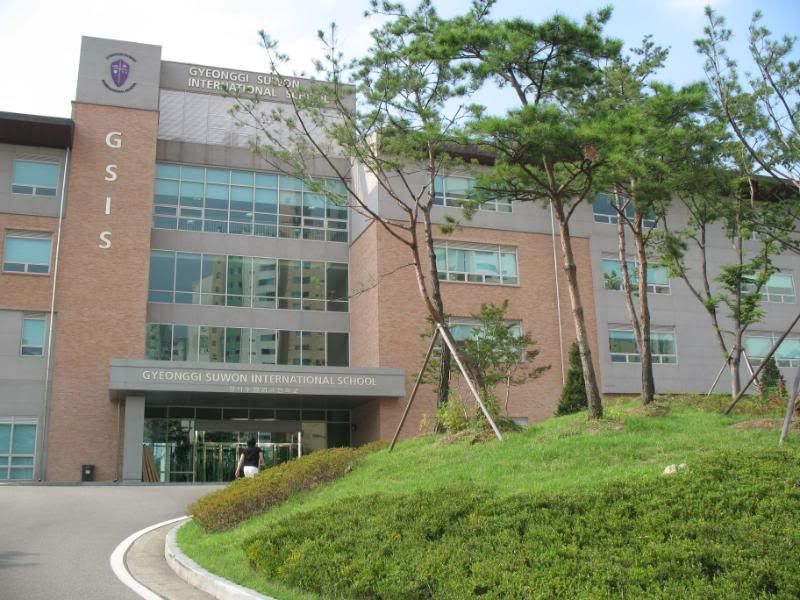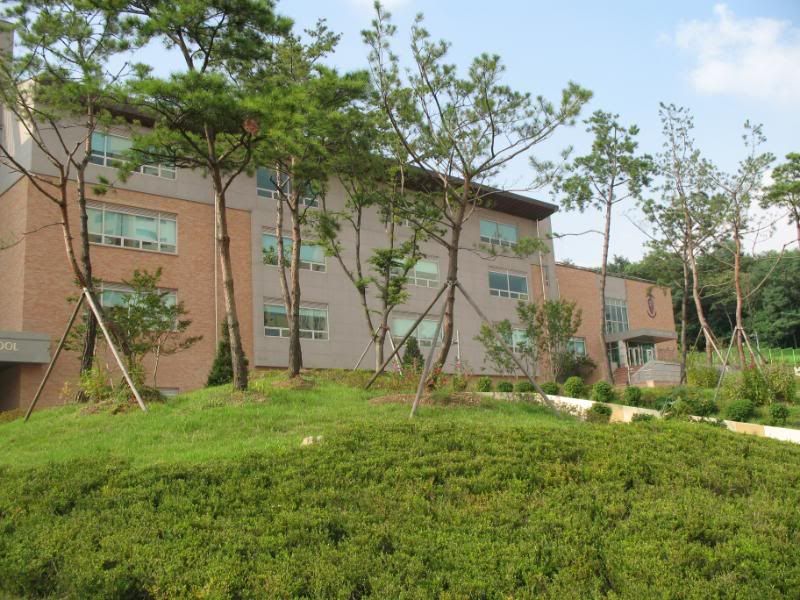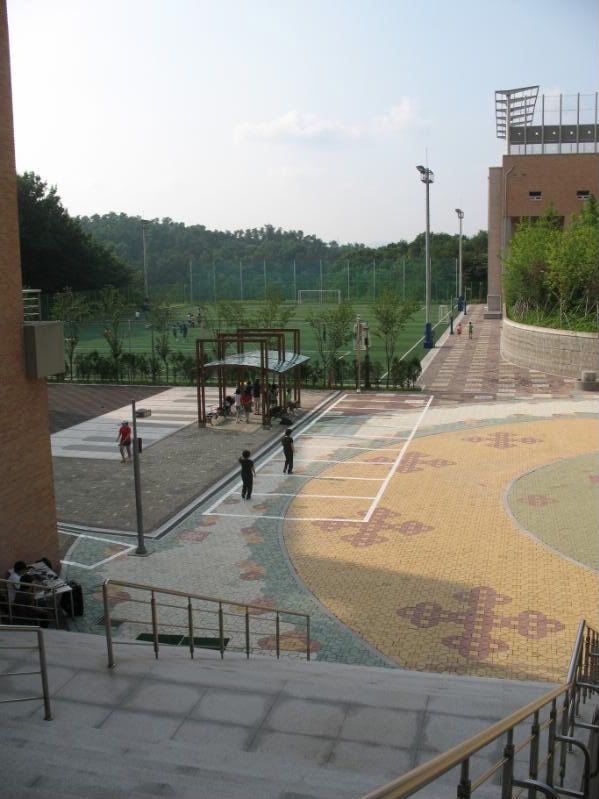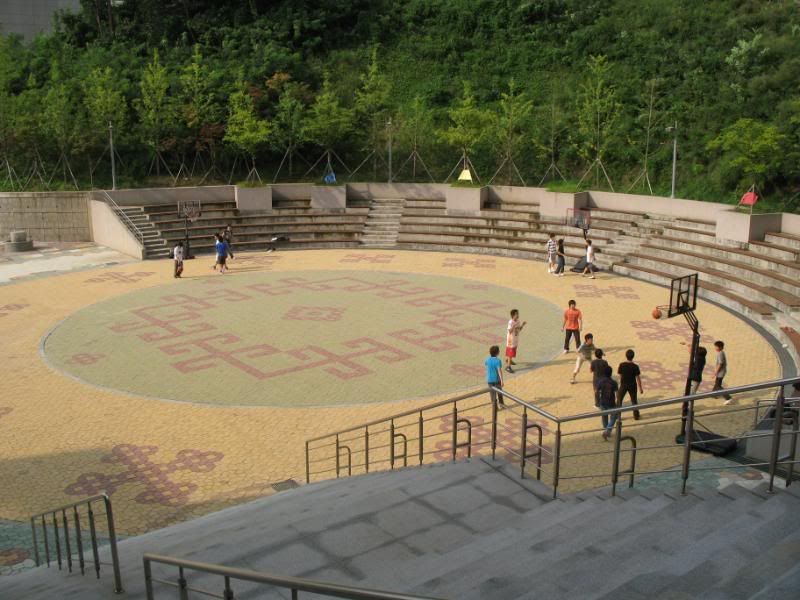Recently, an American friend commented that she wished Americans had the chance to use languages other than English, rather than just mimicking them in an artificial classroom environment.
For a number of reasons, I am glad that English is my native language, because it has given me numerous advantages. But also think that in many cases, being a unilingual, native English speaker puts you in the unfortunate position of not having to make an effort. In my travels, I have encountered dozens of indifferent Canadians, Americans, Brits, Australians, and New Zealanders who think that learning another language is a waste of time. "Everybody speaks English," they shrug. "What's the point?"
Although I am a citizen of a country with two official languages, I grew up in a part of Canada that is entirely anglophone. I took French classes in elementary school, but I didn't benefit from them other than learning to recite a few stock phrases ("C'est vendredi. Ou est le bibliothéque?"). When I was eight, my parents took me to Ontario to spend Christmas with my grandparents. One evening, all of my aunts, uncles, and cousins came over for supper. The meal was just about to begin, and I was sitting under the table playing. I heard my mom and aunt speaking badly butchered French to each other. My grandma jokingly chastised them in her own perfect French. They were all laughing about it, but listening to them suddenly filled me with a deep, inexplicable sadness. My two French grandmothers had not passed their language down. French was suddenly more than just a boring subject in school. It was a tantalizing part of my history and my past to which I had no access. In that instant, I felt that French was
my language, but it was lost. I vowed to myself then that I was going to learn it. Unfortunately, though I tried hard in my French classes, it never seemed to click. French just wouldn't stick in my brain. In high school, I found myself in the beginner class. It was a blow to my ego, but I was determined to trek on.
My teacher, Mme. Gomes, turned out to be absolutely fantastic. From the moment she introduced herself, I knew that she was well-suited to teach me, because she wasn't a native French speaker -- she had learned it through effort and hard work, like I would have to do. The first day of class, she asked us to write self-introductions but forbade us from writing them in English first and translating them. "Translating doesn't work," she said. "You will never learn to be a spontaneous speaker if you always have to fall back on English in your head."
At the time, I thought that was the most ridiculous thing I'd ever heard. At that point, my French was restricted to "bonjour" and "merci," so writing a self-introduction without using English first seemed impossible. How could she expect a beginner class to do this? I did as she asked because she was a very good teacher, but there was always a lag there, always a translation in my head. I kept up with French through high school and university. I enjoyed it, but a mental barrier remained. It was often a downright slog.
Then, all of a sudden, one day the magic moment came. It was similar to Helen Keller's description of the day she learned to communicate the word "water":
"Someone was drawing water and my teacher placed my hand under the spout. As the cool stream gushed over one hand she spelled into the other the word water, first slowly, then rapidly. I stood still, my whole attention fixed upon the motions of her fingers. Suddenly I felt a misty consciousness as of something forgotten, a thrill of returning thought, and somehow the mystery of language was revealed to me."It was like that for me. I was visiting Québec and walking down the street, listening to the French conversations around me, and suddenly
I understood. It was different than all of my laboured efforts in my French classes. This time, there was no lag while my brain processed the grammar or puzzled over the words.
It just made sense. The moment was one of the happiest, most exhilarating of my life. I cannot describe how I felt a part of the world open up. I suddenly had access to something I hadn't even known existed.
This is not to say that I now occupy a French utopia. I may be conversant, but I am not fluent, which is an endless source of frustration. In Canada, many francophones, especially francophones in Québec, turn down their noses at anglophone Canadians, and are very emphatic that Québec is solely a part of
la francophonie. As a result, my visits to Québec typically result in an uncomfortable catch-22. On the one hand, the Québecois expect that in their province, French will be spoken. I saw graffiti to that effect during my last visit to Montréal: "En Québec, on parle
français!" ("In Quebec, you speak
French!") However, if you attempt to speak French and they discern even the slightest trace of the hated anglophone accent, they will switch to English automatically. I find it immensely frustrating. I am making a solid effort to reconnect with my language and my culture, but the plain fact is, I will always be an anglo. My accent will forever mark me.
For this reason, I sometimes find studying Korean to be more enjoyable than studying French. If I fail to understand something in French, I feel very frustrated, because it is yet another reminder that I am cut off from my own background. But with Korean, the pressure is off. If I understand it, it is a pleasant bonus. If I don't, well, it's not my language and never was. Although my French is infinitely better than my Korean, I often feel more comfortable speaking Korean. Koreans are delighted if foreigners make the smallest effort to speak their language, whereas the slightest French error will earn you only a smug smirk in Québec. Also, English and French are a lot more similar to each other than English and Korean are. Both English and French support Western, European ideologies and modes of expression. But as my Korean improves, my insights into the culture grow, and my perspective on the world shifts much more dramatically.
My cousin Tory and I spoke today about the resentment we still feel sometimes about our struggles with French. I often think that my life would have been so much easier had I been raised speaking it. But then I always pause and think no, it is probably better that I had to struggle. Being bilingual from birth might have made me complacent. I needed that fight so that I could have that breakthrough.
After all, when I study Korean now, the difficult part of the work is already done. Simply accepting a language for what it is, without always comparing it with English, is half the battle. I don't try to reconcile the grammar or pronunciation with their English counterparts. They are what they are. My knowledge of Korean is poor, but I do have moments when I hear a Korean phrase and understand it as easily as I understand anything in English. The resulting euphoria is extremely gratifying. It's like crack, actually, and since there's always something to learn, there's always another fix around the corner. In fact, the more you learn, the better it becomes. These days I have been studying Esperanto, and it is fun to activate different parts of your brain: "Oh, this syllable is like the sound 어 in Korean, this word sounds like French, this word comes from English." I can even practice my French by doing my Esperanto lessons in it. The more connections you make, the easier and more delightful it becomes to make still more.
To me, the point of learning other languages is the joy of reliving that "water moment" over and over again.









